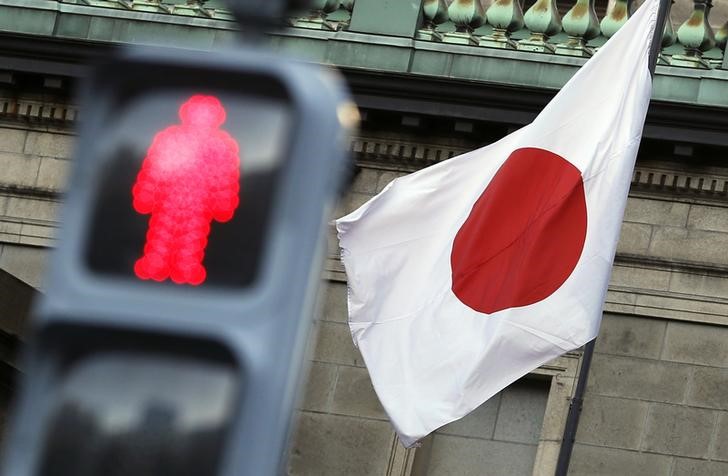Investing.com - Here are the top five things you need to know in financial markets on Tuesday, August 2:
1. Yen surges to 3-week high as Japan stimulus underwhelms
The yen surged to a more than three-week high against the dollar on Tuesday, as investors were disappointed by details of Japanese Prime Minister Shinzo Abe’s fresh stimulus package.
The package includes 13.5 trillion yen in fiscal measures, while actual new, direct spending will total about 7.5 trillion yen, most of it over the next two years.
While the headline figure for the package totals 28.1 trillion yen, it includes public-private partnerships and other amounts that are not direct government outlays and thus may not give an immediate boost to growth, according to market analysts.
The dollar hit lows of 101.47 against the yen, the weakest since July 11 and was last at 101.68 by 09:55GMT, or 5:55AM ET, down 0.7% on the day (USD/JPY).
2. Oil edges up but remains in bear market territory
Oil prices edged higher on Tuesday, but remained in bear market territory amid signs of increasing production in the U.S. and rising output among members of the Organization of the Petroleum Exporting Countries.
U.S. crude was up 32 cents, or 0.8%, to $40.38 a barrel during morning hours in New York, while Brent tacked on 41 cents, or 0.97%, to $42.55 a barrel.
Crude futures are more than 20% below their 2016 highs above $50 a barrel scaled in early June, technically placing it in bear market territory, as signs of an ongoing recovery in U.S. drilling activity combined with elevated stocks of fuel products weighed.
3. Global stocks trade lower as sentiment wanes
U.S. stock index futures pointed to a weaker open on Tuesday morning, as investors looked ahead to a fresh batch of corporate earnings reports and U.S. economic data, while keeping an eye on oil prices.
Meanwhile, European stocks were lower in mid-morning trade Tuesday, dragged down by banking shares as worries about the health of the region's lenders continued to weigh on sentiment.
Earlier, Asian shares slipped on Tuesday, taking their cues from a modestly lower day on Wall Street.
4. Credit Suisse , Deutsche Bank to be dropped from Euro STOXX 50 index
Swiss lender Credit Suisse Group AG (SIX:CSGN) and German banking giant Deutsche Bank AG (DE:DBKGn) will be dropped from an index of Europe's top 50 blue-chip companies next week in a further blow to the embattled sector.
For Deutsche Bank, it will be the first time since 1998 that it will no longer be a member of the Stoxx 50.
Shares of both were firmly in the red on Tuesday, with Credit Suisse down more than 6% in Switzerland and Deutsche off 3.5% in Frankfurt.
5. RBA cuts cash rate to record low
The Reserve Bank of Australia cut its benchmark interest rate by a quarter percentage point to an all-time low of 1.50%, responding to record-low inflation and a slowing jobs market.
In his policy statement, RBA Governor Glenn Stevens said the global economy was growing at a lower-than-average pace, with conditions becoming more difficult for several emerging market economies.
The Australian dollar fell to as low as $0.7492 after the RBA decision. It later recovered to around $0.7573, amid speculation the central bank was done with its current easing cycle.
